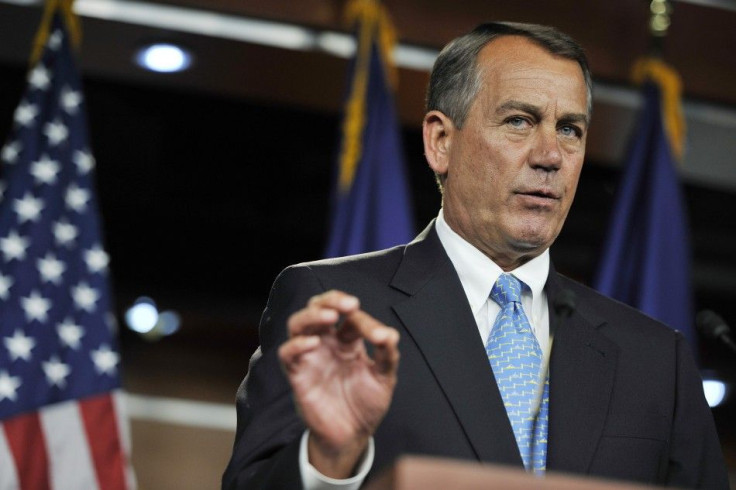Boehner: Super Committee Can Find a Compromise

Contrary to evidence of gridlock, House Speaker John Boehner, R-Ohio, expects the budget deficit super committee will find some middle ground on its road to closing at least $1.2 trillion in the nation's budget gap, he told a group of University of Louisville students on Monday.
Nobody thought the committee's job will be easy, and it hasn't been. No one is surprised by that, Boehner said during a question and answer session following a speech. But I have high hopes that in the weeks ahead this panel will find common ground.
Yet the compromise will not come at the cost of core principals, he added, alluding to previous promises no deal to close at least a $1.2 trillion deficit gap will be reached if there are tax increases.
Common ground doesn't mean compromising on your principles, Boehner said during a question and answer session following a speech. Common ground means finding the places where your agenda overlaps with that of the other party.
Hurdle: Tax Issue
The remarks come after mounting evidence the super committee has hit a snag over taxes. Last week, both parties revealed their opening gambits for a deal, with Democrats proposing a $3 trillion mix of tax increases and spending cuts, and Republicans countering with a $2.2 trillion plan comprised solely of spending cuts.
Though Boehner is not part of the 12-member committee, but has reportedly jumped in with other congressional leaders to help push along negotiations.
The super committee was established as part of a deficit reduction deal, the Budget Control Act, in exchange for raising the nation's debt ceiling on Aug. 2. While the government was allowed to borrow up to $2.4 trillion more through 2013, the super committee was charged with reaching a bipartisan consensus on $1.2 trillion in deficit reduction over the next decade, in addition to the roughly $900 billion in deficit reduction Congressional Republicans and President Barack Obama agreed to as part of the August debt deal. Congress then has until Dec. 23 to pass the recommendations, otherwise trigger cuts, in the form of slashes to defense spending and Medicare benefits, would be automatically enacted.
© Copyright IBTimes 2024. All rights reserved.











